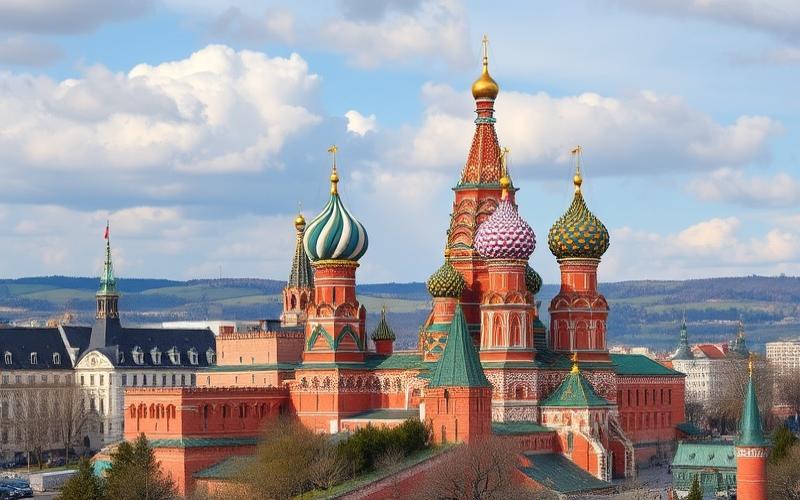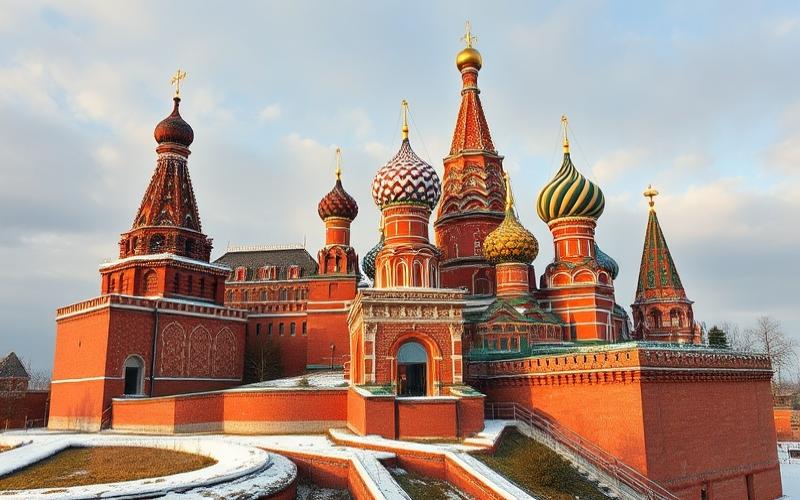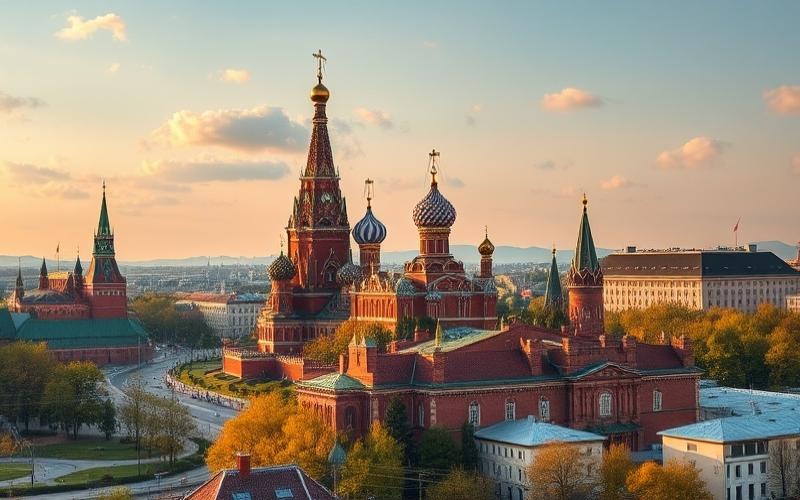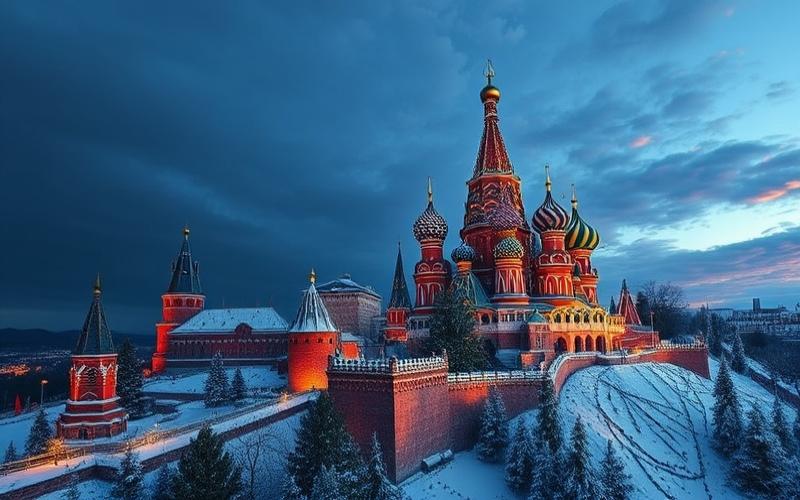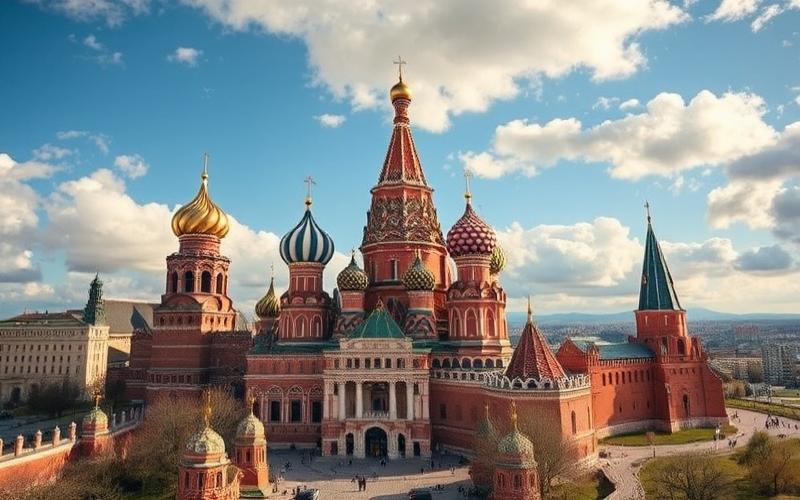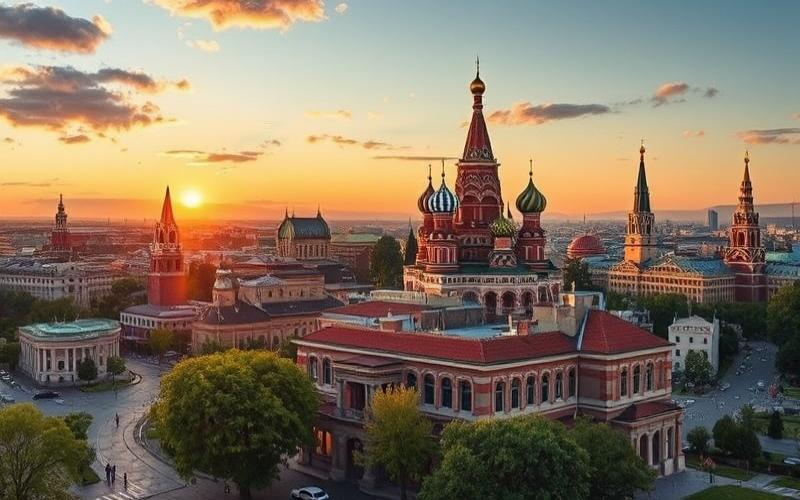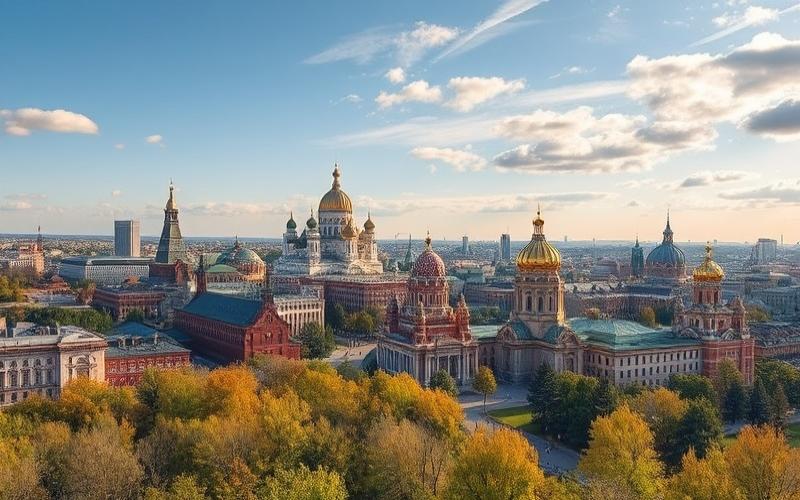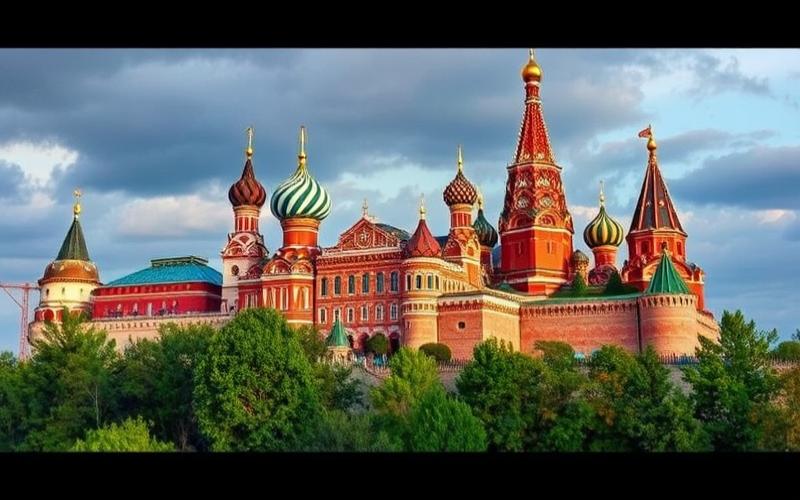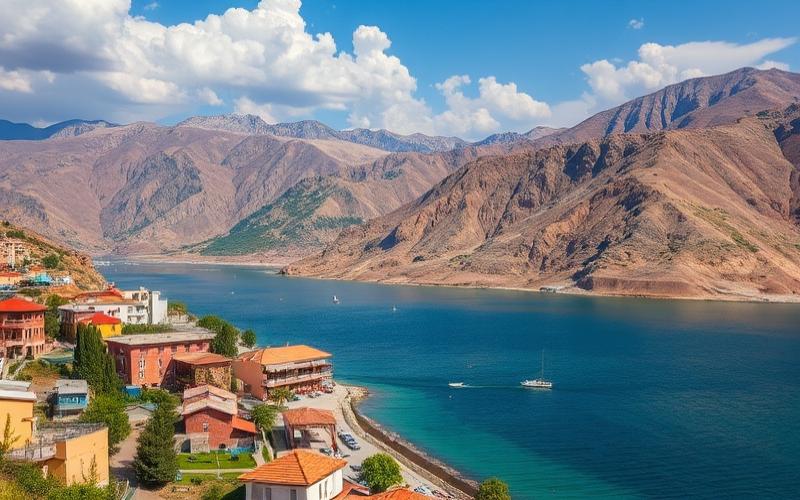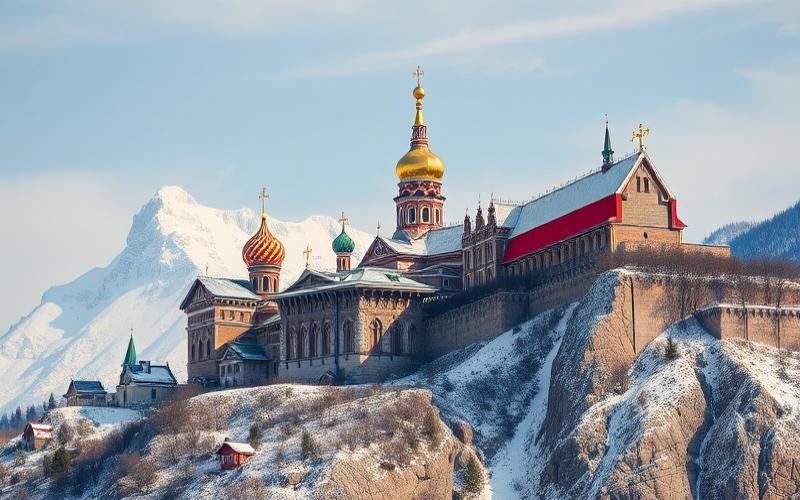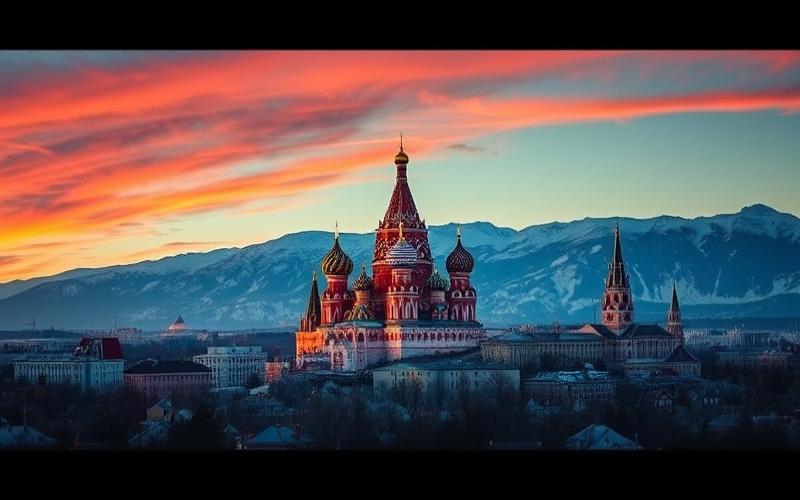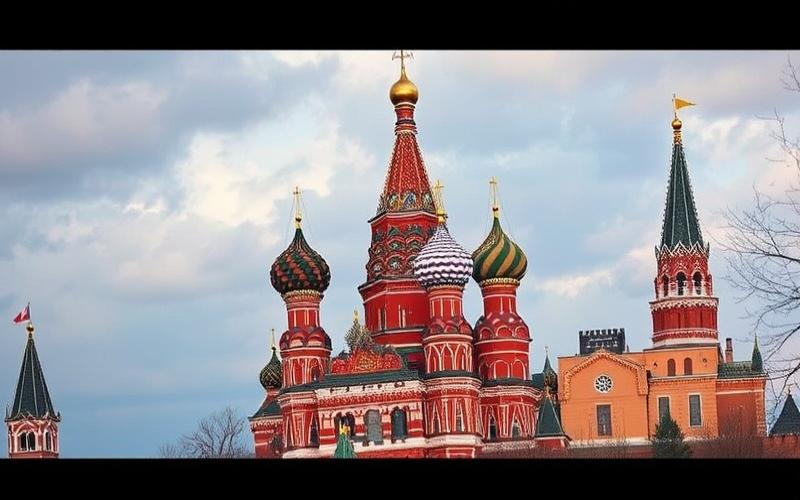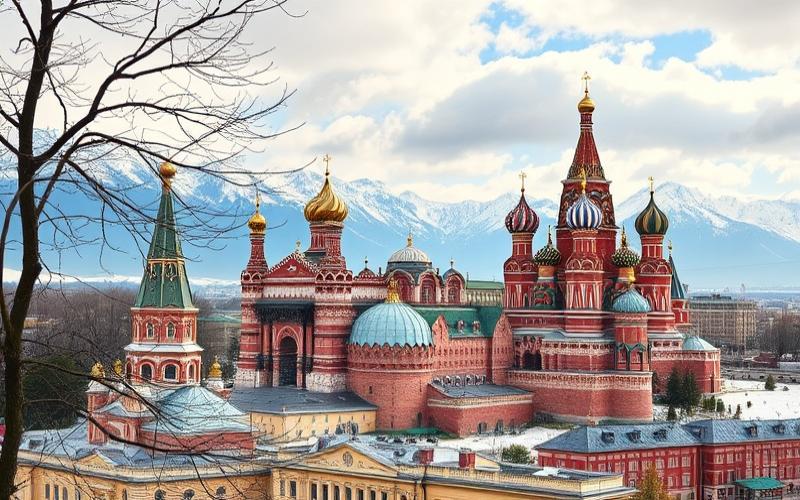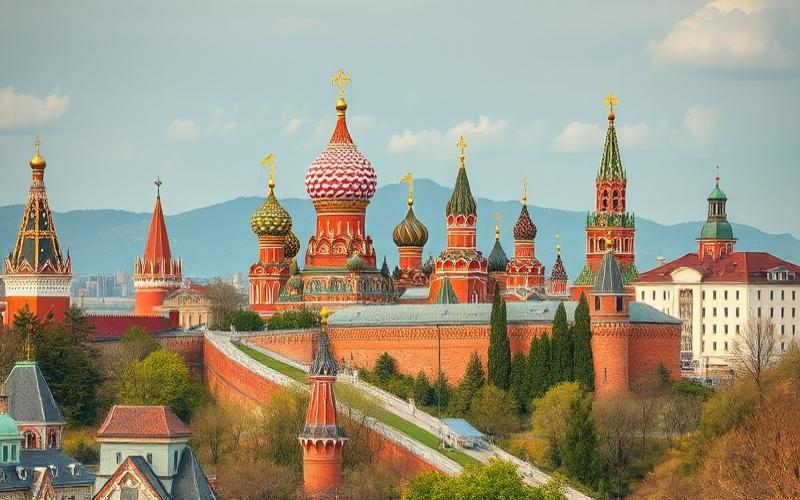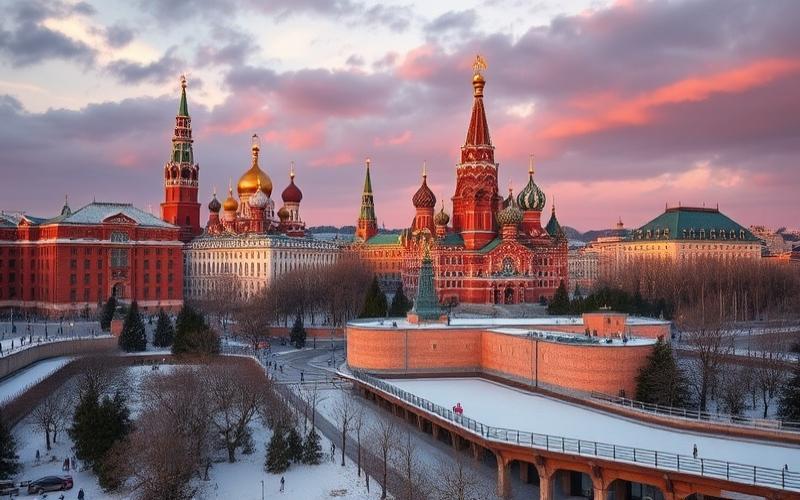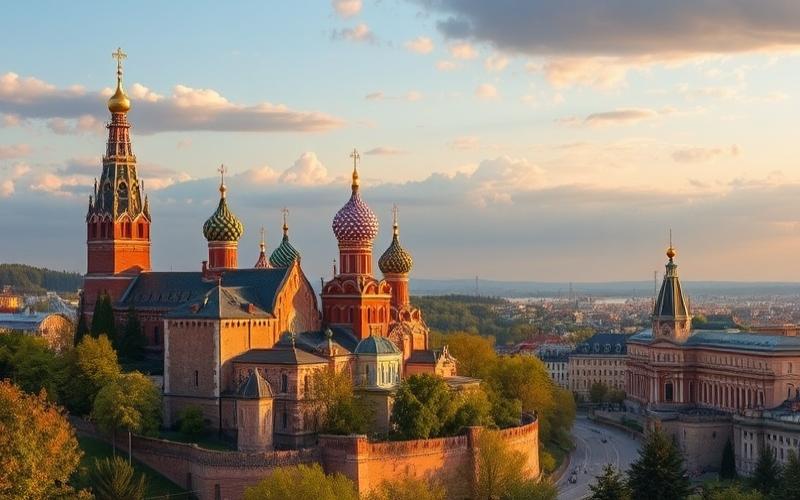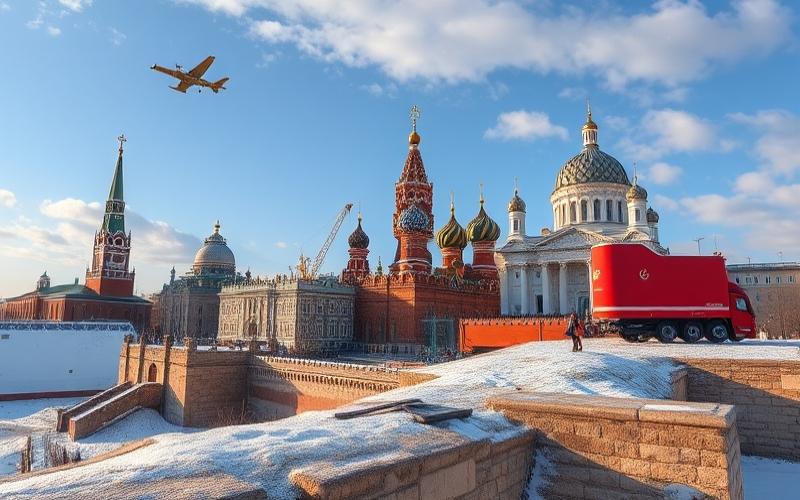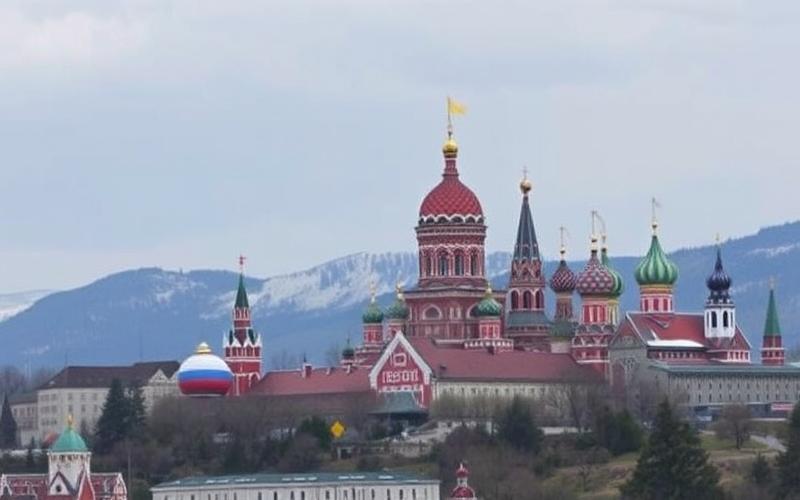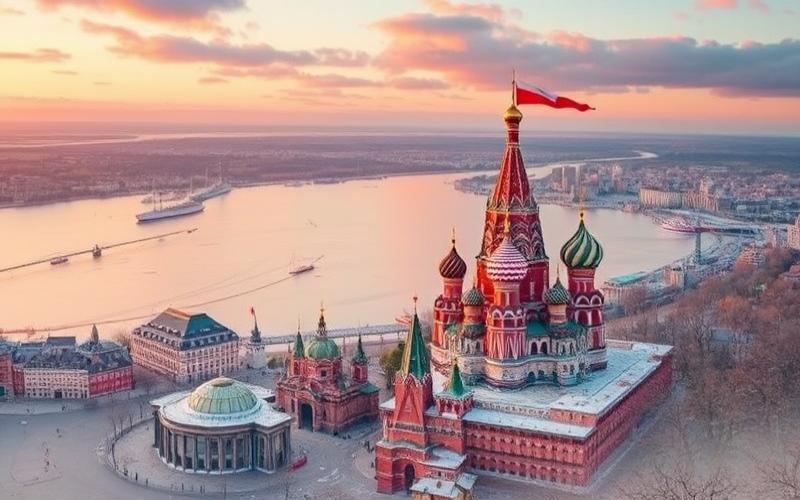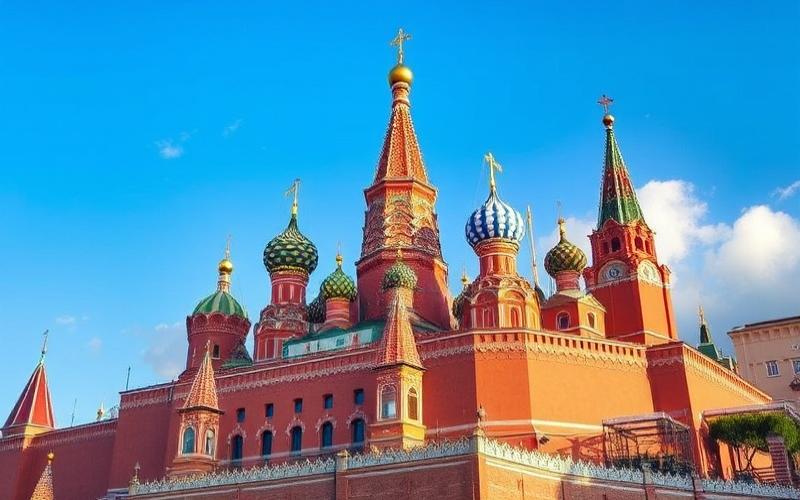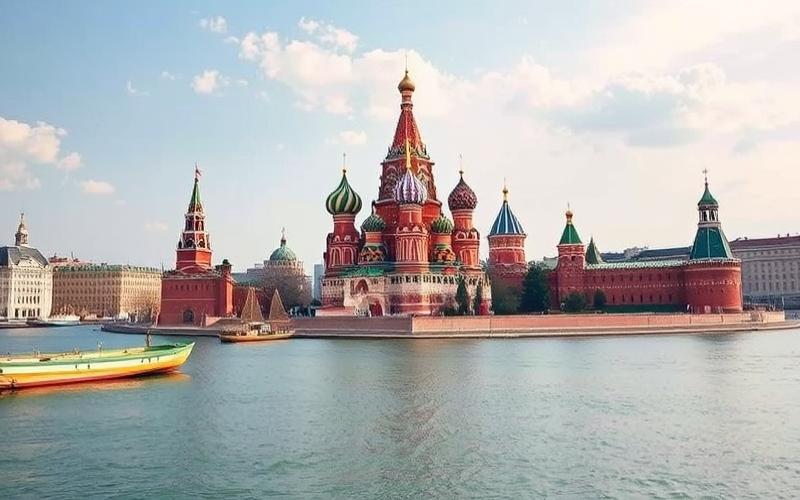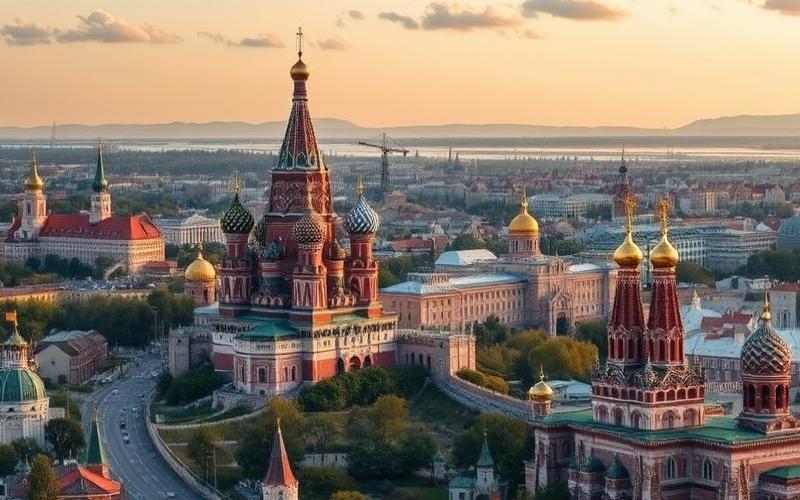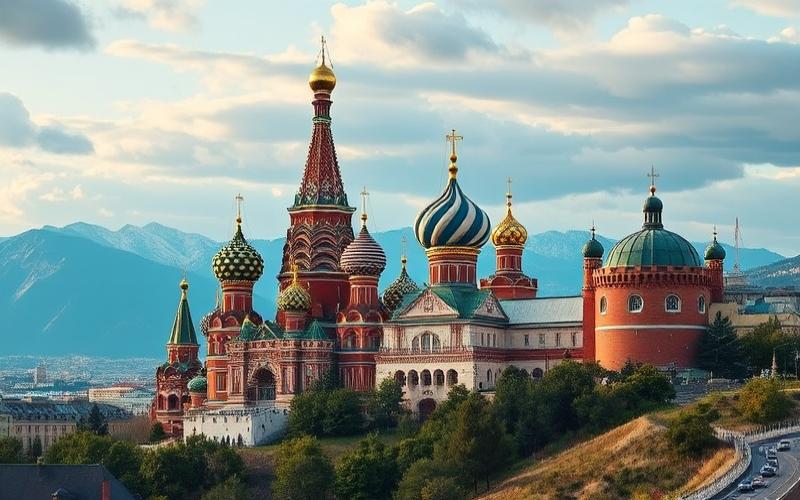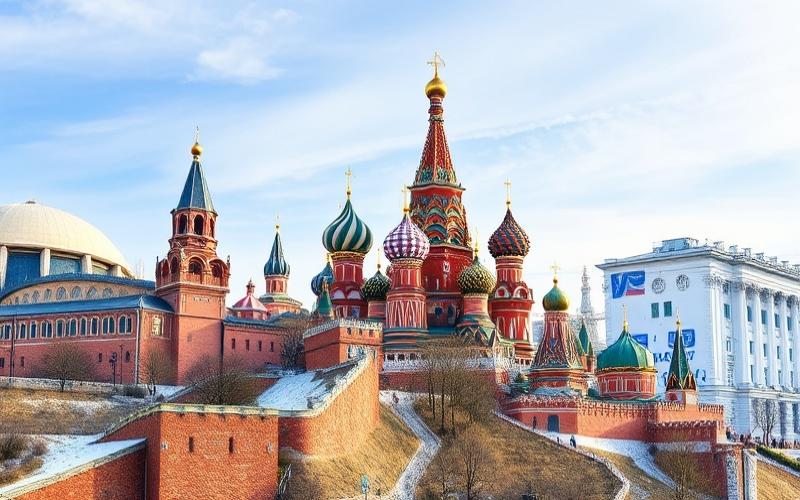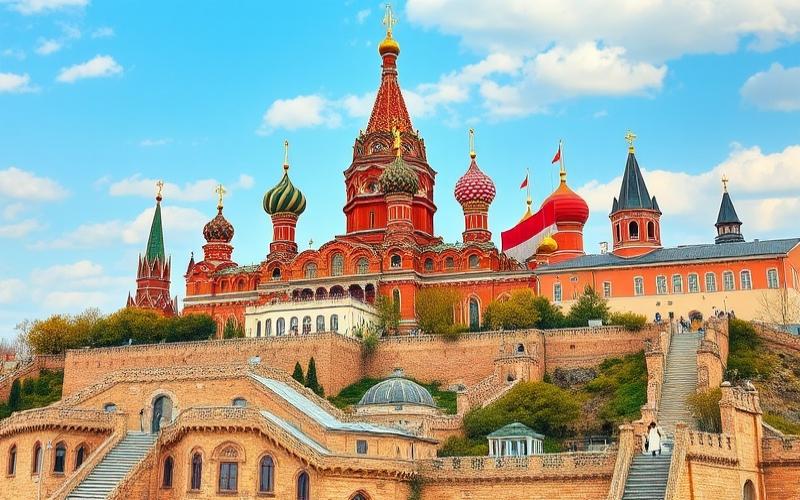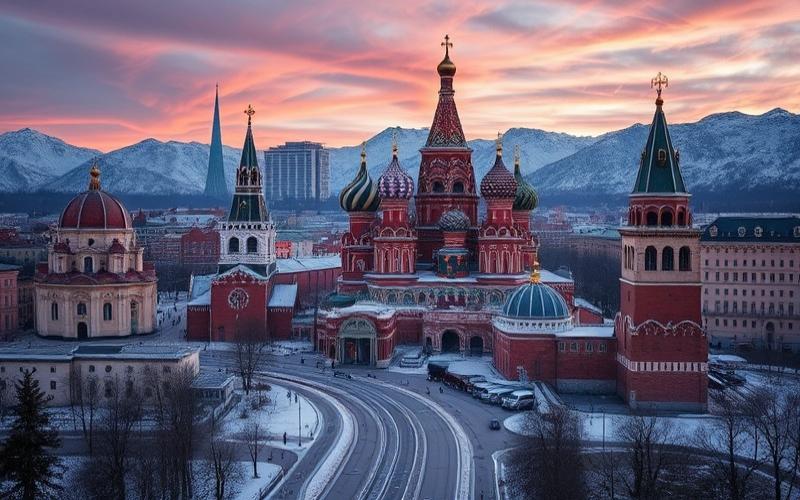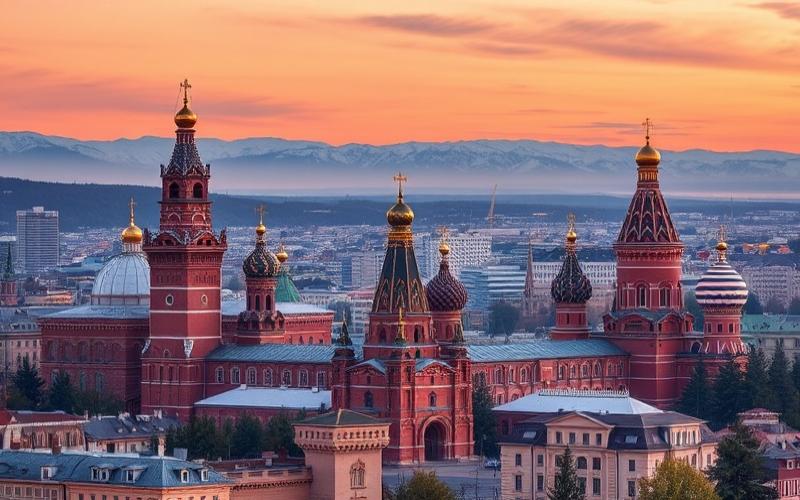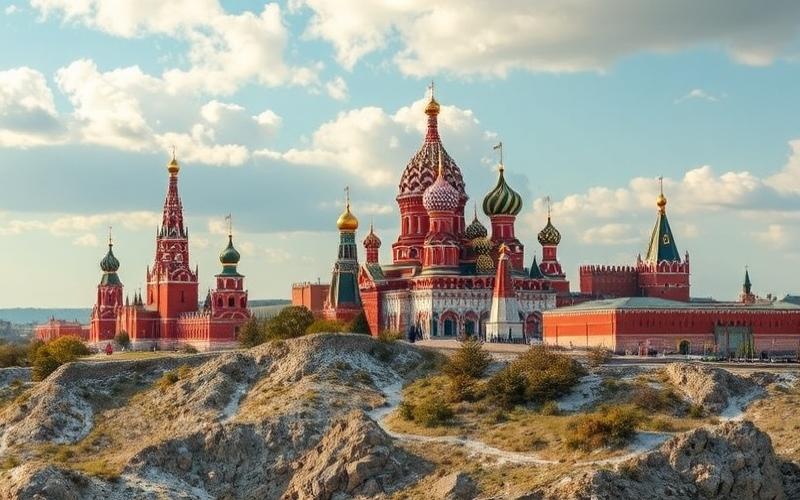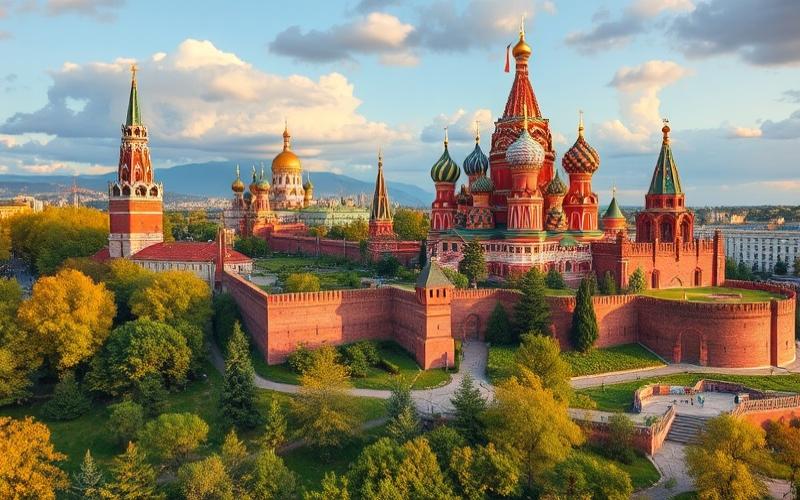
 Published on and written by Cyril Jarnias
Published on and written by Cyril Jarnias
Navigating the complex intricacies of administrative procedures in Russia can prove confusing, especially when it comes to obtaining a construction permit. This process, strictly governed by rigorous regulations, requires a thorough understanding of local and national legal requirements.
From preparing the required documents to interacting with the relevant authorities, each step demands particular attention to ensure the project proceeds smoothly.
By diving into this article, readers will discover the essential keys to successfully completing this undertaking while ensuring compliance with all applicable legal standards.
Procedures for Obtaining a Construction Permit in Russia
Key steps for obtaining a construction permit in Russia:
- Investment decision and feasibility study
- Land selection (verification of land use rules and zoning)
- Obtaining initial permits (consultation with local administration or Multifunctional Center, MFC)
- Preparation of technical and administrative documentation
- Official submission of the application to the relevant municipal authorities
- Review by concerned government agencies, including potential environmental or cultural expertise
- Issuance of permit if the project is compliant
- Official notification of construction commencement
| Required Document | Description/Requirement |
|---|---|
| Land ownership documents | USRN extract, purchase deed, land title |
| Architectural plans | Detailed schematic, site placement |
| Environmental impact study | Comprehensive report on potential effects |
| Technical description/project | Intended use, objectives, technical data |
| Compliance certificates | Adherence to national/local standards (SNIP, GOST) |
| Construction commencement notification | Declaration to be submitted to city hall |
| Stakeholder consultation | Evidence of consultation: nature/environment/culture authorities |
Involved Government Agencies:
- Local municipal administration
- Multifunctional Center for Administrative Services (MFC)
- Regional/Ministry of Culture/Environment depending on specific cases
Typical Timeframes to Expect:
Average timeframe: between 3 and 6 months for the entire process after complete dossier submission
Specific Regulations to Comply With:
Main applicable standards in Russia:
- Federal urban development codes (notably decree No. 87/2008)
- Local land use and urban planning rules specific to each municipality (“ППЗ”)
- Technical standards SNIP & GOST (construction safety/networks/material quality)
- Additional sectoral regulations in protected or industrial zones
Main Obstacles/Challenges Encountered:
- Procedure perceived as lengthy and costly
- Multiple administrative stages with risks of delays due to additional requests or mandatory expert reviews
- Frequent need for consultations with different agencies depending on the land’s special status/zoning/historical/protected location
- High risk in case of errors in submitted documents; any irregularity leads to rejection or suspension
- Anticipate a lengthy procedure; prepare all documents before official submission.
- Contact a local MFC from the outset to fully understand all regional requirements.
- Consider specialized legal assistance for complex acquisitions or industrial projects.
- Systematically verify that your project complies with all local constraints—these vary significantly between Moscow/St. Petersburg/rural areas.
– Cultural authorities,
– Regional ministries,
– Environmental services.
Additional permits may be required.
Good to Know:
Obtain a construction permit in Russia by submitting architectural plans to local authorities, complying with construction and zoning standards, and anticipating timeframes that can extend several months; note that for Moscow, additional documentation requirements may apply.
Urban Planning Regulations for Expatriate Builders
Urban Planning Regulations in Russia Applicable to Expatriates Wishing to Build
Eligible Land Types
- Only certain types of land can be acquired and built upon by foreigners:
- Residential or commercial use land (excluding border or strategic zones, where acquisition is often prohibited or restricted).
- Agricultural land is generally not accessible for direct foreign ownership.
- Land located in protected areas (national parks, nature reserves, specially protected natural territories) is subject to strict environmental rules.
Zoning Restrictions
Urban zoning determines the nature of permitted constructions (residential, commercial, industrial, etc.).
Areas with special status (conservation, historical heritage, protected environment) impose additional constraints:
- Prohibition or restrictions on demolition, modification, or expansion of existing buildings.
- Need to obtain specific permits for interventions in protected zones.
Construction Standards
- Mandatory compliance with Russian construction standards (SNiP, GOST), covering safety, seismic resistance, energy efficiency, accessibility, etc.
- Some projects require an environmental impact assessment, particularly in sensitive areas.
- Buildings must conform to local prescriptions regarding heights, setbacks, materials, and colors.
Administrative Formalities for Expatriates
- Construction permit: essential for any new construction or major renovation.
- Land use permit: required in case of change to the land’s initial use.
- Environmental permits: mandatory in protected areas or if the project has significant ecological impact.
- Project registration with local authorities.
| Procedure | Detail / Specificity for Expatriates | Typical Timeframes |
|---|---|---|
| Land acquisition | Eligibility verification, restrictions | 1 to 3 months |
| Construction permit application | Technical dossier, plans, proof of ownership | 2 to 6 months |
| Environmental review | In case of protected area or large-scale project | +2 to 6 months |
| Final registration | Entry in real estate registry | 1 to 2 months |
Differences Between Expatriates and Russian Citizens
Expatriates face:
- More checks (source of funds, property title compliance, etc.)
- Restricted access to certain land types (strategic zones, agricultural)
- Sometimes longer timeframes due to enhanced review of foreign dossiers
Russian citizens can more easily acquire agricultural land and are subject to fewer administrative controls.
Specific Requirements Related to Expatriate Status
- Need to provide translated and apostilled documents (passport, proof of residence, funding sources).
- Sometimes obligation to use a Russian legal entity (corporate body) for acquisition or construction.
- Risk of refusal or permit revocation in case of irregularities regarding stay or land ownership.
Resources and Support for Expatriates
- Lawyers specialized in Russian real estate law: assist in verifying land status, drafting contracts, obtaining permits.
- Local consultants in urban planning and environment, particularly for protected areas.
- Professional unions such as the Union of Architects of Russia (www.uar.ru) to find licensed architects.
- Consular services for administrative assistance and translation.
- Some international real estate agencies have services dedicated to expatriates.
Key Points to Anticipate
- Anticipate lengthy and sometimes complex administrative procedures.
- Plan for translation and legalization of foreign documents.
- Seek assistance from a local professional with experience working with foreign clients.
Good to Know:
Expatriates in Russia must comply with zoning restrictions and strict construction standards, and it is recommended to consult a specialized lawyer to navigate the complicated administrative formalities. Processing of a construction permit application can vary but generally extends over several months, with additional specific requirements for non-citizens.
Authorization and Regulatory Compliance for Construction Projects
To obtain construction authorization in Russia, one must follow a rigorous administrative procedure involving several types of permits and the intervention of different government agencies. This process requires preparation of a complete technical dossier, compliance with national and local regulatory standards, and consideration of environmental and safety aspects.
Types of Required Permits:
| Permit or Authorization | Description | Competent Authority |
|---|---|---|
| Land use permit (land title) | Justifies land ownership or usage rights | Local administration/MFC |
| Construction permit | Officially authorizes project launch | Municipal administration/MFC |
| Technical expertise | Technical validation of plans and compliance with standards (SNIP/GOST) | Accredited organizations/state expert reviews |
| Construction commencement notification | Preliminary declaration before work begins | City hall/Local administration |
Main Involved Government Agencies:
- Municipal administration or Multifunctional Center (MFC)
- Regional/national urban planning agencies
- Russian Ministry of Emergency Situations (safety)
- Rosprirodnadzor (environmental protection)
- Russian Ministry of Culture (for protected/historical zones)
Required Documentation:
Main list to provide:
- Documents proving land ownership (USRN extract, notarized deed)
- Detailed architectural plans
- Comprehensive environmental impact assessment
- Technical description of project and intended use
- Evidence/certificates of compliance with SNIP/GOST standards
- Various official notifications depending on project type
Estimated Approval Timeframes:
Average timeframe varies by complexity:
- Standard projects: 2 to 6 months.
- Protected areas/large projects (+500m²): up to 6 months.
Potential Associated Costs:
Fees depend on:
- Building size/area.
- Regulatory complexity.
Common examples:
- Variable local administrative fees,
- Fees for technical/environmental studies,
- Additional cost if using independent expert.
Regulatory Standards & Mandatory Compliance:
Summary list:
- Urban planning standards/SNIP/GOST: Govern design, structural safety, accessibility.
- Environmental regulations: Mandatory study/report on ecological impacts; consultation with Rosprirodnadzor in certain sensitive cases.
- Fire safety/public infrastructure/seismic safety, validated by specialized authorities.
Potential consequences of non-compliance:
- Immediate suspension or outright cancellation of construction;
- Heavy administrative fines;
- Possible demolition if built without valid permit;
- Temporary exclusion/ban from future public tenders.
Recent Illustrative Example:
Residential project in a protected area near Moscow:
- Initial consultation with MFC to verify specific local rules;
- Complete submission including independent ecological study;
- Mandatory consultation with Rosprirodnadzor then cultural expertise due to proximity to classified site;
- Total timeframe from initial submission to final obtaining ~5 months;
- Administrative cost >200,000 RUB excluding private expert fees;
- A delay was caused by a requested supplement on landscape impact—concrete proof that each stage can affect timeframes/costs;
Another example concerns an apartment building whose dossier required additional validation from municipal services following late modification of technical plans—demonstrating the crucial importance of strict documentary compliance from initiation.
In Summary
Permit obtaining is structured around:
- Exhaustive documentation,
- Multiple multi-agency validations,
- Timeframes subject to local/project complexity,
- Substantial costs linked to full compliance with Russian standards,
Vigilance on every documentary/regulatory point is imperative under penalty of not only financial but also major legal consequences in Russia.
Good to Know:
In Russia, the construction permit obtaining process can take up to 6 months and requires detailed plans compliant with environmental and safety standards; it is crucial to consult Gosstroy and the Ministry of Construction to avoid high fines in case of non-compliance. A notable example is the “Okhta Mall” shopping center in St. Petersburg, which had to revise its plans to comply with urban planning regulations before obtaining its approval.
Disclaimer: The information provided on this website is for informational purposes only and does not constitute financial, legal, or professional advice. We encourage you to consult qualified experts before making any investment, real estate, or expatriation decisions. Although we strive to maintain up-to-date and accurate information, we do not guarantee the completeness, accuracy, or timeliness of the proposed content. As investment and expatriation involve risks, we disclaim any liability for potential losses or damages arising from the use of this site. Your use of this site confirms your acceptance of these terms and your understanding of the associated risks.

